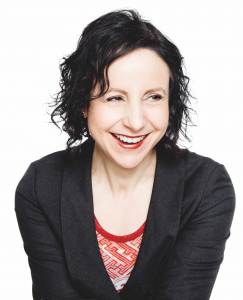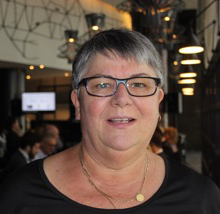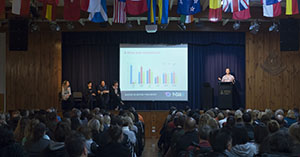Paula Ross helps clients and their families with issues related to substance use, addiction or ‘substance-use disorder’.
In the field of drug and alcohol treatment and intervention there are lots of different terms – addiction, problematic drug use, or substance dependence. Addiction as a word has gone a little out of favour and from a psychology perspective we tend to now use ‘substance-use disorder’, but the criteria for substance use disorder are mostly the factors people consider when talking about addiction.
“Some young people use substances experimentally, some recreationally and some become substance-use dependent, but they are the minority. Substance use and therefore dependency can be related to internal and external factors.
“External factors are things like peer-group behaviour and what might be going on in the young person’s family and circumstances at the time. Internal factors include the fact that some kids are more naturally risk takers, and there is a group of young people who start taking drugs as self-medication for depression, anxiety and because they don’t feel good about themselves. I think it’s possible we’ll discover that certain brain chemistry makes you more predisposed to addiction, too.
“There are a complex number of factors that are involved here and so it’s not as simple as young people who develop substance-use disorders being from ‘bad’ families or from ‘bad’ parents. Parents and family members often feel they have failed or done something wrong and also need support.
“The things that start heading into substance-use disorder territory are when young people start spending increasing amounts of time using, obtaining, planning or sorting out their drug use or recovering from drug use.
“We are concerned if young people start not meeting their commitments in other areas of their life as a result of their drug use. So they don’t get homework done, they can’t get to school and they don’t do their normal social and family activities. So things start to ‘go’.
“It can be helpful if parents and family members don’t jump to conclusions but instead start a conversation with their child about what might be happening – ‘I notice this, this and this, what is going on?’ Rather than ‘I’ve noticed this, this and this – I think you’re using drugs’.
“Stay calm and don’t overwhelm your teenager. So don’t sit down with your whole family and talk at them. Think about who is the best person to talk to the young person, who has the best communication with them, who is most likely to not get angry or emotional? And approach the conversation with warm curiosity – ‘I’m interested in what is going on, how are you…’
“You won’t have one conversation and find that your young person says ‘you’re right, I’ll stop’.”
“Parents need to have realistic expectations. You won’t have one conversation and find that your young person says ‘you’re right, I’ll stop’. Approach each conversation with an aim to start a dialogue and to keep communication channels open.
“If the conversation starts to go badly and you or your child gets angry or emotional, stop it. Don’t pressure yourself to have the whole conversation in that one moment. Sometimes the first conversation is about flagging the issue and sending the message that your child can talk about anything with you and that they can come to you. It is an ongoing conversation.
“There is some debate around whether you disclose your own past (or present) drug use. Parents need to walk the line between disclosure with the aim of letting a child know that you understand versus how much of your disclosure will your child hear as permission giving. If you do disclose, don’t turn it into a speech about every drug you’ve taken in your life – disclose a certain amount.
“Parents can talk to a professional to discuss what they are dealing with and to get advice on how they can support their child. Consistency in the family is important. Family members should talk among themselves about how they as a family are going to respond to this issue. So are you giving your child
money or not? Are you letting them stay out all night or not?
What do you tell your other children if they ask questions about what is happening?
“Above all, as a starting point, stay calm, get help and keep focusing on having conversations.”



